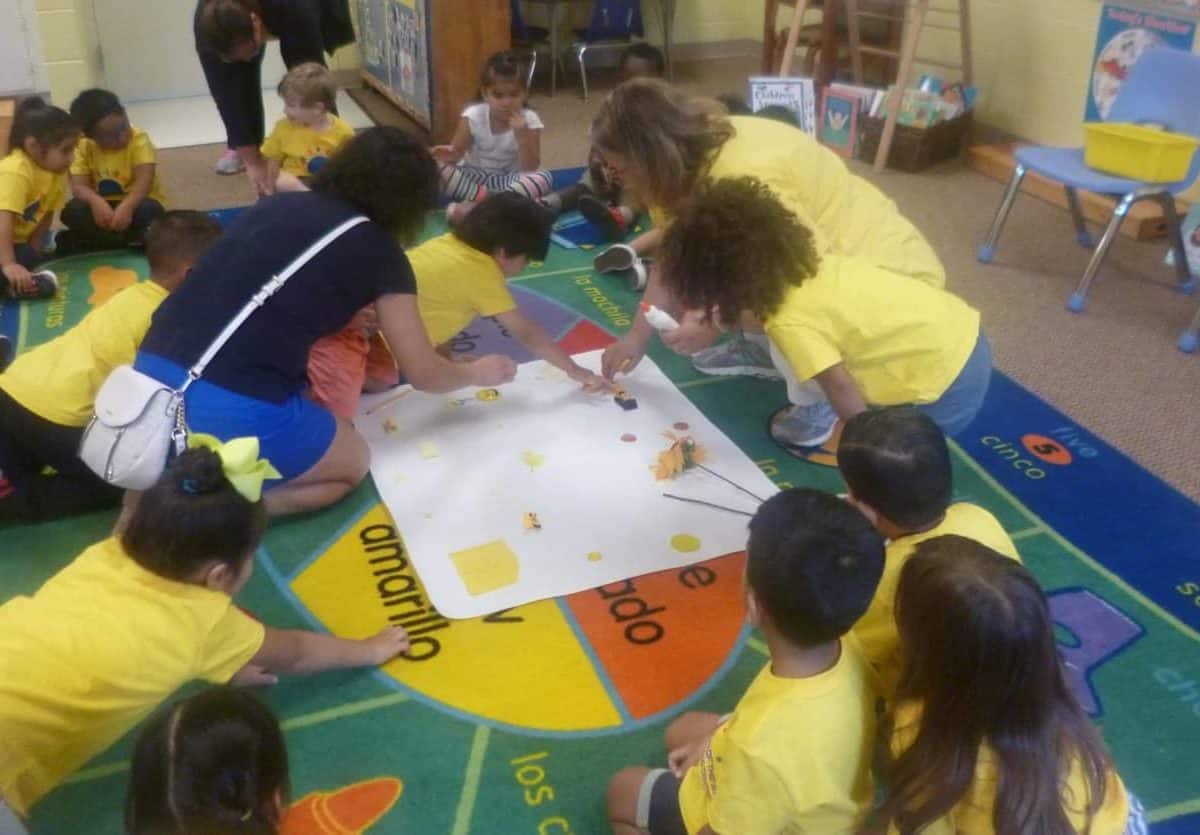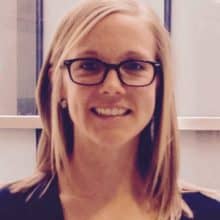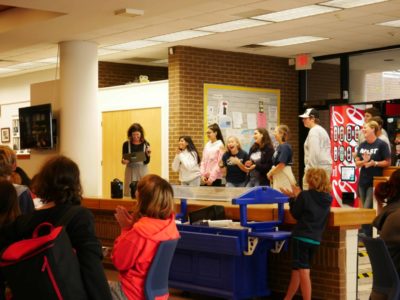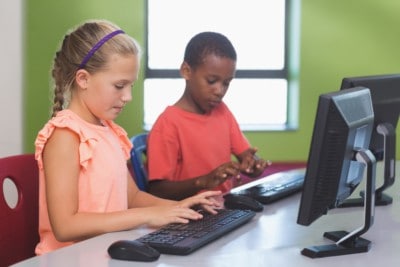

Charlotte is not heralded as a “land of opportunity” for many of its residents. That stark reality became most public in 2013 when Raj Chetty published his now well-known report in which Charlotte was ranked 50th out of 50 cities in the United States for upward economic mobility for families/persons living at or near the poverty line.
Both the Chetty study, the Equality of Opportunity report, and Charlotte’s response, the Leading on Opportunity report, have emphasized the importance of early childhood education. The American Dream remains elusive in part because of inequities of schooling experiences and segregation. The earlier the access to high-quality care and education, the better, advocate authors of both of these reports.
So what might this look like in action?
For Elva and her son, Anderson, it looks like their experience at Children of the World Learning Center (COTWLC). A multicultural, dual-language (Spanish and English) preschool, COTWLC offers a tiered tuition system to obtain socioeconomic diversity among its families. Elva was thrilled to learn of an opening for her son to attend because she knew her Mexican-American son would benefit from the dual-language instruction. It became even more advantageous as he began the schooling experience.
“When Anderson came to school, he got really frustrated because he couldn’t communicate because he was behind in speech,” Elva explained. “He has improved a lot and having two teachers, Spanish and English, make Anderson feel comfortable because he can communicate in both languages.”
Recognizing Anderson’s learning needs early on, COTWLC director, Maria Cardarelli, sought to activate numerous supports both in the classroom and at home. While referrals for therapy were put into place, Cardarelli took another step — she invited Anderson’s mother into the classroom on a regular basis. As a bilingual educator of more than 25 years, and a Latina herself from Venezuela with Italian immigrant parents, she connects well with families of all backgrounds who attend the school. Cardarelli recognized the benefit of supporting the home-school partnership: Elva could offer the one-on-one assistance that her son needed in the classroom, and she could learn from the teachers the strategies in place at school to carry on at home.
So every day that Anderson is in school, so is his mother, learning alongside the teachers like her son. Elva says that she has not just learned how to maintain similar academic learning goals at home, but behavioral ones as well. She has seen how the teachers offer structure and redirection in modeling for Anderson the desired interactions with other children. “The part of socializing with other children for me is very important,” she says, “because before Anderson did not know how to communicate or interact with other children.” She loves that the other kids know her by name, and she is excited to see “the small steps” her son is making every day.
Family engagement has long been a focus of schools, particularly since 2002’s federal legislation of No Child Left Behind made parent involvement plans a required component of Title I funding. Schools today frequently expect the parent to take on learning responsibilities that are enacted in the classroom, often adhering to white, middle- to upper-class norms.1 With sometimes differing conceptions of “parent involvement,” Latino families’ engagement with their children’s education are often overlooked or ill-supported by teachers and administrators.2
Cardarelli understands the values and challenges of being a Latina mom, having a daughter of her own who now attends the University of North Carolina Chapel Hill. She also has a degree in psychology from her home country of Venezuela, which greatly informs her relationships with students as well as parents at COTWLC. This expertise is not common of many preschools in the United States.
Elva praises “Ms. Maria” and her role at the school. “She is very kind and she is very sweet lady, not just with me but with all the parents. She’s very supportive.” Elva continues to explain Cardarelli’s influence on her relationship with her son: “Ms. Maria, when I used to talk with her about things that would worry me, and she used to say, ‘Don’t worry. This is just going to be for a moment, then it’s going to go away.’ I used to be very worried, and I liked to talk to Ms. Maria because she would always give me help. … At home I was very impatient but then Ms. Maria gave me so many advices and now I’m more like relax, I feel like I am living again.”
Cardarelli’s help, the “amazing” patience and dedication of the teachers, and the overall environment of the school are what Elva credits to the academic and social-emotional learning of her son. Beyond assisting Anderson in the classroom, she describes the additional parenting classes offered at the preschool that attend to the whole child. Through a partnership with the local public library, COTWLC teaches parents how to read with their child. Other classes offer support on nutrition and healthy living, even classes on mental health in dealing with stress.
Children of the World Learning Center is shining as a bright spot in a community that struggles to offer high quality, affordable preschool education. And the initial success of the school, only in its second year of operation, demonstrates the benefits of high-quality early education, bilingual education, and authentic home-school partnerships within an intentionally diverse setting. COTWLC is helping to rewrite the story of attaining the American dream, with students like Anderson receiving the support they need to thrive.




